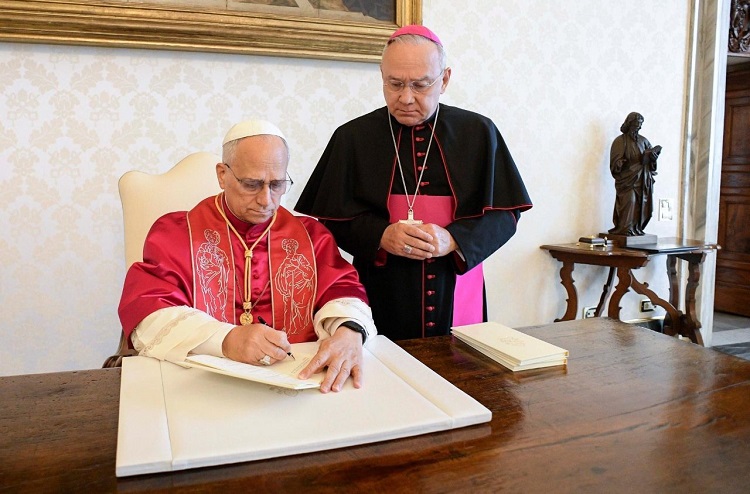(ZENIT News / Vatican City, 10.06.2025).- In a decisive move signaling both continuity and correction, Pope Leo XIV has issued his first Apostolic Letter in the form of a «Motu Proprio», titled «Coniuncta cura»—a document that reshapes the Holy See’s financial governance and marks the beginning of a new phase in Vatican economic reform. Signed on September 29, the feast of the Archangels Michael, Gabriel, and Raphael, and made public on October 6, the text redefines the balance between oversight and collaboration across the Holy See’s financial institutions.
The document draws explicitly from the principle of “co-responsibility in communion,” a cornerstone of «Praedicate Evangelium», the 2022 apostolic constitution of Pope Francis. Leo XIV places this idea at the heart of his reform, insisting that even the management of money and investments must reflect a spirit of service and mutual trust. His aim, he writes, is to consolidate norms and clarify competencies, while encouraging “a dynamic of mutual collaboration” between the Vatican entities involved in financial administration.
«Coniuncta cura» formally repeals the 2022 «Rescriptum ex Audientia» of Francis, which had centralized control of all Vatican investments and liquidity under the Administration of the Patrimony of the Apostolic See (APSA). That earlier system, designed to tighten oversight after years of scandal and fragmentation, required all dicasteries and Vatican bodies to transfer their assets into APSA-managed accounts.
Leo XIV’s letter confirms APSA’s general competence but reconfigures its role: in carrying out investment activities, APSA must now make “effective use” of the internal structure of the Institute for the Works of Religion (IOR), better known as the Vatican Bank. This subtle but significant shift restores an operational function to the IOR, long sidelined under previous regulations, while allowing flexibility to employ external financial intermediaries “where more efficient or advantageous,” provided they are vetted by the Investment Committee.
All Vatican investment operations, the «Motu Proprio» stipulates, must now conform to the Investment Committee’s policies and adhere to the approved investment strategy—one that integrates prudence, sustainability, and moral coherence. The measure extends beyond financial efficiency, embedding ethical discernment into every decision: investments must serve not merely profit but the Church’s social and pastoral mission.
Observers within the Curia interpret this as both a refinement and a correction of the Francis-era centralization. One senior cardinal, speaking anonymously, noted that the College of Cardinals had raised concerns about the “ideological rigidity” of some previous economic directives. Leo XIV’s response, the prelate said, reflects “a return to balance, to shared responsibility that prevents both dispersion and concentration of power.”
In practical terms, «Coniuncta cura» establishes a more nuanced architecture of governance: one that maintains accountability but diffuses decision-making through cooperative mechanisms. Transparency, once framed mainly as control, is now envisioned as participation.
Published in «L’Osservatore Romano» and set to appear in the «Acta Apostolicae Sedis», the Apostolic Letter takes immediate effect. It represents not only a legal adjustment but a reorientation: the economy of the Church, Leo XIV implies, must rediscover its true vocation—to be an instrument of communion rather than a terrain of competition or dominance.
Behind the technical language of finance reform lies a clear pastoral vision. As one Vatican official close to the dossier remarked, “The Pope has recognized that certain things simply needed to be set right.” With «Coniuncta cura», Leo XIV appears determined to do precisely that—restoring coherence, integrity, and moral purpose to the machinery that sustains the mission of Peter’s successor.
Thank you for reading our content. If you would like to receive ZENIT’s daily e-mail news, you can subscribe for free through this link.

